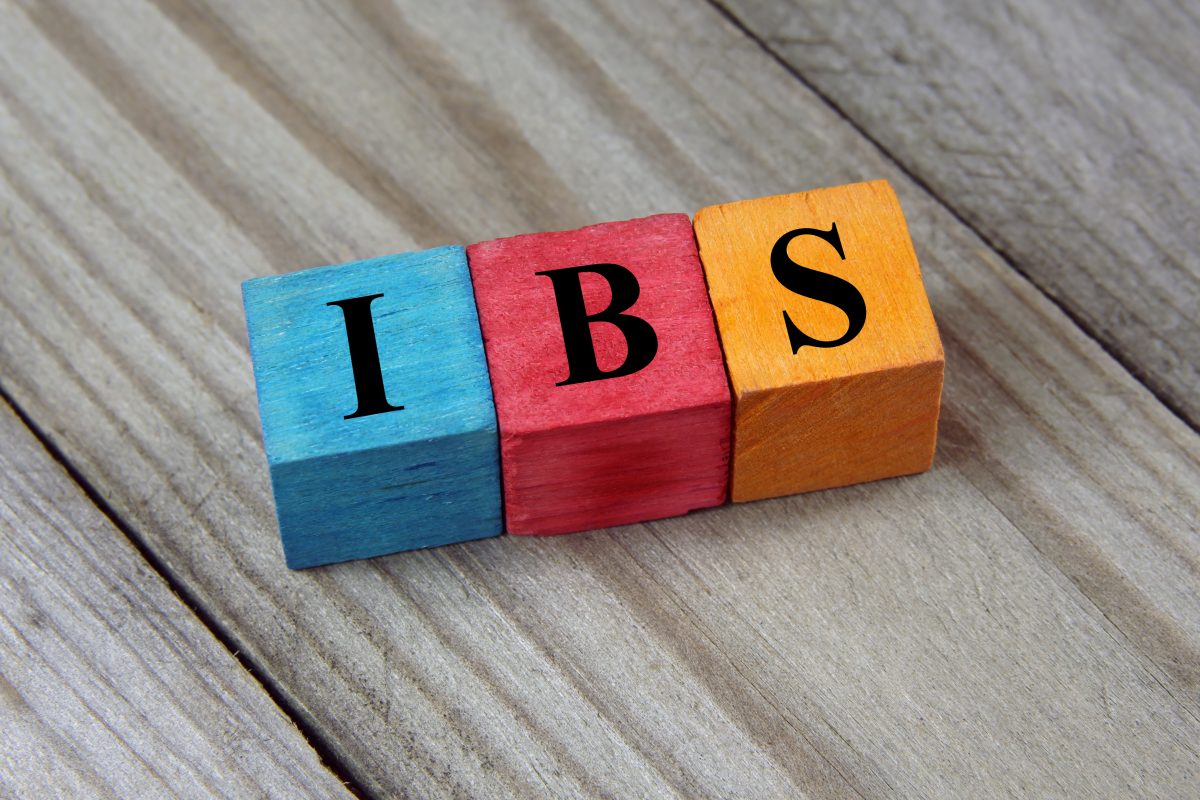IBS digestive enzyme guide – six options that work
- Supplements
This IBS Digestive Enzyme Guide will discuss what digestive enzymes and how someone with IBS can use them.
We will also explain how you can improve your digestion with IBS and whether digestive enzyme deficiency causes IBS.

WHAT ARE DIGESTIVE ENZYMES?
Digestive enzymes are proteins that break down your food so that you can digest it.
You can mostly find these enzymes in your saliva, stomach, and small bowel.
Digestive enzymes fall into three categories:
- Protease – for protein digestion
- Carbohydrase – for carbohydrate digestion
- Lipase – for fat digestion
Please note, before you read any further, most people DO NOT need to take a digestive enzyme supplement.
DOES ENZYME DEFICIENCY CAUSE IBS?
IBS is a complex condition, and enzyme deficiency may partially contribute to IBS.
However, the exact cause of IBS is still not well understood as the cause is multifactorial and includes (1):
- Gut hypersensitivity
- Gut-brain interaction
- Altered gut motility
- Psychosocial distress
To read more about the causes of IBS, check our article: “What are the symptoms and causes of IBS?”
WHICH DIGESTIVE ENZYME IS THE BEST FOR IBS?
As tolerance to FODMAPs differs from person to person, it is impossible to answer this question straightforwardly.
In the following sections, we will look into the science behind digestive enzymes for IBS and mention the examples of brands that provide those supplements.
WILL ALPHA-GALACTOSIDASE DIGESTIVE ENZYME HELP IBS SYMPTOMS?
Alpha-galactosidase is an enzyme that breaks down oligosaccharides – a type of FODMAP.
These FODMAPs can be found in:
- Wheat
- Garlic
- Onion
- Beans/pulses
These foods may cause you to bloat or have loose stools/diarrhea.
Many people who have IBS will be intolerant to this type of carbohydrate.
In a small study, eight drops of an alpha-galactosidase enzyme were shown to reduce flatulence after a meal, typically creating a lot of gas (2).
Participants did not report any change in bloating or stomach pain compared to the placebo (5).
In another 12-week study of 101 individuals, the same enzyme showed reduced symptoms of abdominal distension and flatulence (3).
However, the results were so small that they were not considered significant to be reliable.
Another study from 2018 showed that two tablets with alpha-galactosidase before a meal reduce symptoms compared to placebo (4).
Interestingly, only taking one pill did not provide any benefits. This suggests that the type of enzyme and the dose are important for symptom relief (4).
Examples of alpha-galactosidase digestive enzyme products are:
- Beano
- Nogasin
- Vitacost Gas Enzyme
However, some of those products contain mannitol (another type of FODMAP) and are unsuitable for a low FODMAP diet.
IS LACTASE CONSIDERED AN IBS DIGESTIVE ENZYME?
Lactase is a digestive enzyme that breaks down lactose – a sugar found in dairy. Lactose is also a FODMAP.
You become lactose intolerant when you are unable to produce enough lactase. This is the enzyme that breaks down lactose and leads to symptoms of diarrhea, stomach pain, and gas.
If you are lactose intolerant, this may be permanent or just a temporary problem.
To learn more, read our article: “Understanding lactose intolerance: symptoms, diagnosis, and management strategies.”
A lactase enzyme can help you improve or eliminate your malabsorption symptoms.
The enzyme comes in 2 forms – droplets, which you add to dairy, or tablets, which you take before eating dairy.
Researchers observed two groups in a study of 30 lactose intolerant individuals (5).
One group drank 400 ml of cow’s milk with 3000 IU of lactase added 10 hours before consumption (5).
Another group drank the same amount of milk with 6000 IU of lactase added only 10 minutes before consumption (5).
People who drank milk with a lower dose of enzymes added earlier to the milk had a significant reduction in (5):
- Hydrogen breath concentration
- Bloating
- Abdominal pain
- Flatulence
- Diarrhea
Symptom relief was more significant in the group that drank milk with a lower dose of lactase than the group with a higher amount of lactase (5).
This suggests that there needs to be adequate time allowed for enzymes to work.
WILL A MIXED-TYPE DIGESTIVE ENZYME IMPROVE IBS SYMPTOMS?
Mixed-type digestive enzymes include a combination of various enzymes to support the breakdown of different types of nutrients during the digestive process.
These enzymes play a crucial role in breaking down carbohydrates, proteins, and fats, facilitating their absorption in the digestive tract.
In one study on people with IBS-D, taking 1-3 capsules of mixed enzymes of lipase, amylase, and protease before each meal reduced (6):
- Cramping
- Bloating
- Urgency of stools
- Stool consistency
- Abdominal pain
However, the study has a couple of limitations that reduce the accuracy of the results, so you need to be cautious.
There was a high dropout rate, meaning that the end results could be skewed to those with more benefits from the enzyme.
The study also used the old criteria for IBS, meaning individuals did not necessarily have IBS.
Another study of 90 individuals with IBS showed that a supplement containing mixed enzymes, beta-glucan (a type of fiber), and inositol (a type of sugar) improved symptoms of (7):
- Bloating
- Abdominal pain
- Flatulence
- Urgency to open bowels
Unfortunately, the study does not rule out a placebo effect. This means that people may have felt better due to a strong belief that they were taking something beneficial.
Another study on people with IBS showed that a product with mixed enzymes decreased gas by 75% and entirely prevented diarrhea compared to the group that did not use it (8).
Examples of mixed-type digestive enzyme products are:
- Viokase
- Biointol
- FODZYME
You can also check our recent review on Fodzyme: “Does Fodzyme work? 2023 dietitian review”.
SHOULD I TAKE GLUTENASE FOR MY IBS?
Glutenase is a digestive enzyme that breaks down the protein gluten.
If you are wheat intolerant, you react to fructans (a FODMAP) in the wheat, not gluten.
Therefore, glutenase will not help you with digestion in IBS, and glutenase will not improve your symptoms.

HOW SHOULD I TAKE IBS DIGESTIVE ENZYMES?
If you try digestive enzymes, you should take them to digest specific foods your body can not digest.
Taking supplements randomly will not work and could lead to you wasting a lot of time and money and preventing yourself from getting an accurate diagnosis.
To ensure effective food breakdown, taking enzymes with sufficient time is crucial.
For instance, you should take capsules at the beginning of a meal to mix adequately in the stomach with the food.
For an effective breakdown of lactose in milk or yogurt, add lactase drops with sufficient time to allow the lactase to break down the lactose.
HOW MUCH OF DIGESTIVE ENZYMES SHOULD I TAKE?
Dosing of enzymes will depend on how much of that food you are about to eat. One glass of milk will require more lactose than one scoop of ice cream.
The dose may also differ depending on how much of the enzyme you already produce. This means you must try different doses to determine what works for you.
Also, read the product description to get the correct dose and times.
HOW SHOULD I STORE IBS DIGESTIVE ENZYMES?
You have to store digestive enzymes according to the manufacturer’s instructions to maintain their potency and effectiveness.
Here are some general recommendations for storing.
Store them in the original packaging in a cool and dry place.
Avoid exposure to heat, moisture, and direct sunlight, as these factors can degrade the enzymes and reduce their effectiveness.
Some digestive enzyme supplements may recommend refrigeration to enhance stability. Check the product label or packaging for specific storage instructions.
Do not expose the digestive enzymes to excessive heat or cold, which can compromise their quality. Avoid storing them in places like the car, where temperature fluctuations occur.
And lastly, regularly check the expiration date on the packaging.
Using digestive enzyme supplements beyond their expiration date may result in reduced effectiveness.
WHAT ELSE HELPS DIGESTION WITH IBS?
- The low FODMAP diet
Although enzyme deficiency is not a cause of IBS, people with IBS often have food intolerances (9).
The tolerance level differs from person to person, and to help digestion and other symptoms of IBS, we use the low FODMAP diet (10, 11).
The low FODMAP diet is a three phase process consisting of the following:
- The elimination phase
- The reintroduction phase
- The modified diet
When you discover your tolerance levels to certain foods, you can modify your diet so it contains foods in quantities that are safe for you.
However, if you eat large portions of foods that might cause uncomfortable symptoms, digestive enzymes could help you with digestion.
- Fiber intake
Sufficient fiber intake is also essential for digestion. The general recommendation for fiber intake is 30g a day (12).
As an IBS sufferer, you might need a higher intake of fiber that is recommended for the general population.
To increase fiber intake, you can try low FODMAP fiber supplements, such as psyllium husk. Psyllium husk forms and also softens stools by absorbing water.
To read more about psyllium husk, read our article: What is Metamucil (psyllium husk) and how it can help with IBS-diarrhea?
- Hydration
To help digestion with IBS, stay hydrated. The recommendation for fluid intake is 35 ml per kilogram of body weight.
Make small sips throughout the day.
- Movement
While it is recommended to exercise at least 75-150 min per week (13), try to add any form of movement to your daily routine (walking counts as well).
To read more about movement and gut health, read: Does exercise improve gut health?
SUMMARY
If you are at the start of your IBS ‘journey,’ then you should not be taking digestive enzymes.
Digestive enzymes are particular to a type of intolerance, so taking them randomly or a mixture will not work.
Instead, you must complete the low FODMAP process and determine your intolerances.
If you have been through the FODMAP process and know which foods you are intolerant to, enzymes may help with lactase and oligosaccharide intolerances.
You should know that most digestive enzyme products contain other high FODMAP ingredients that could trigger your symptoms.
Lastly, if your symptoms are due to a deficiency in pancreatic enzymes, you will likely need a prescription dose of enzymes to manage your condition.
In that case, over-the-counter medications will not work for this.
Written by Barbara Lešnik, Student Dietitian, reviewed by Kirsten Jackson, Consultant Dietitian BSc Hons, RD, PG Cert